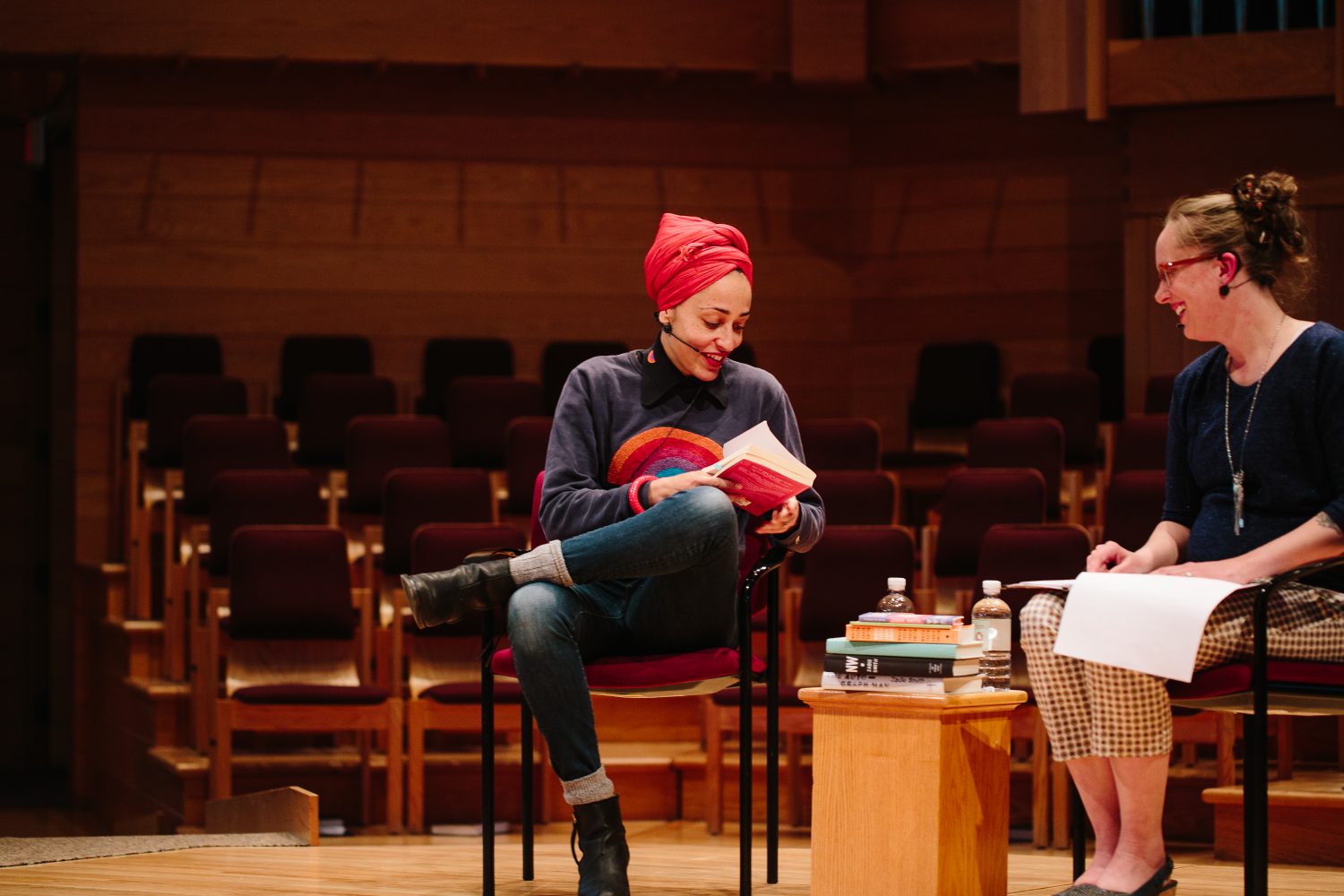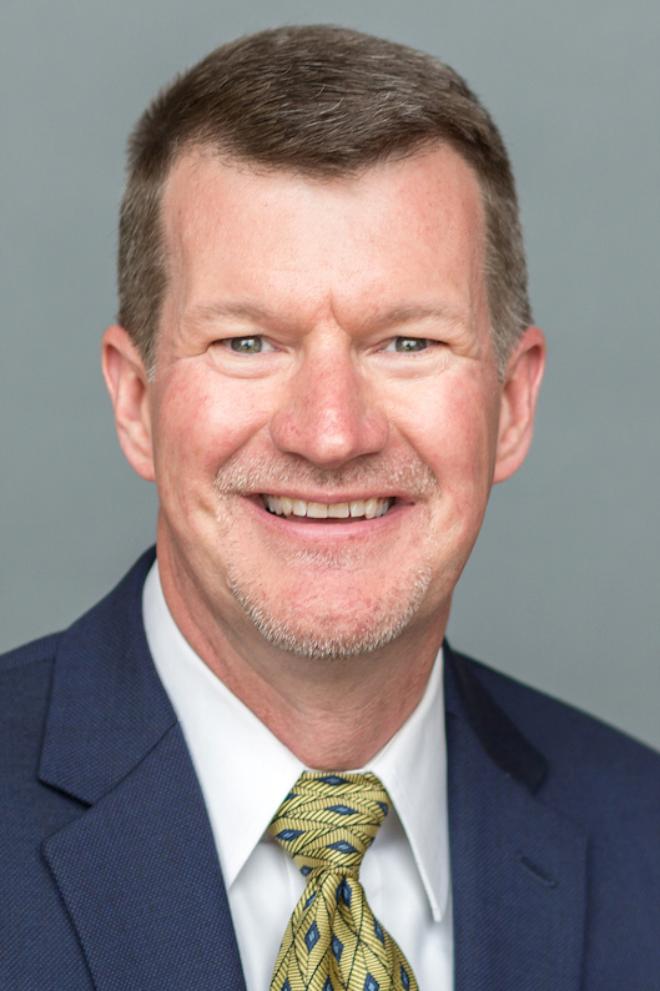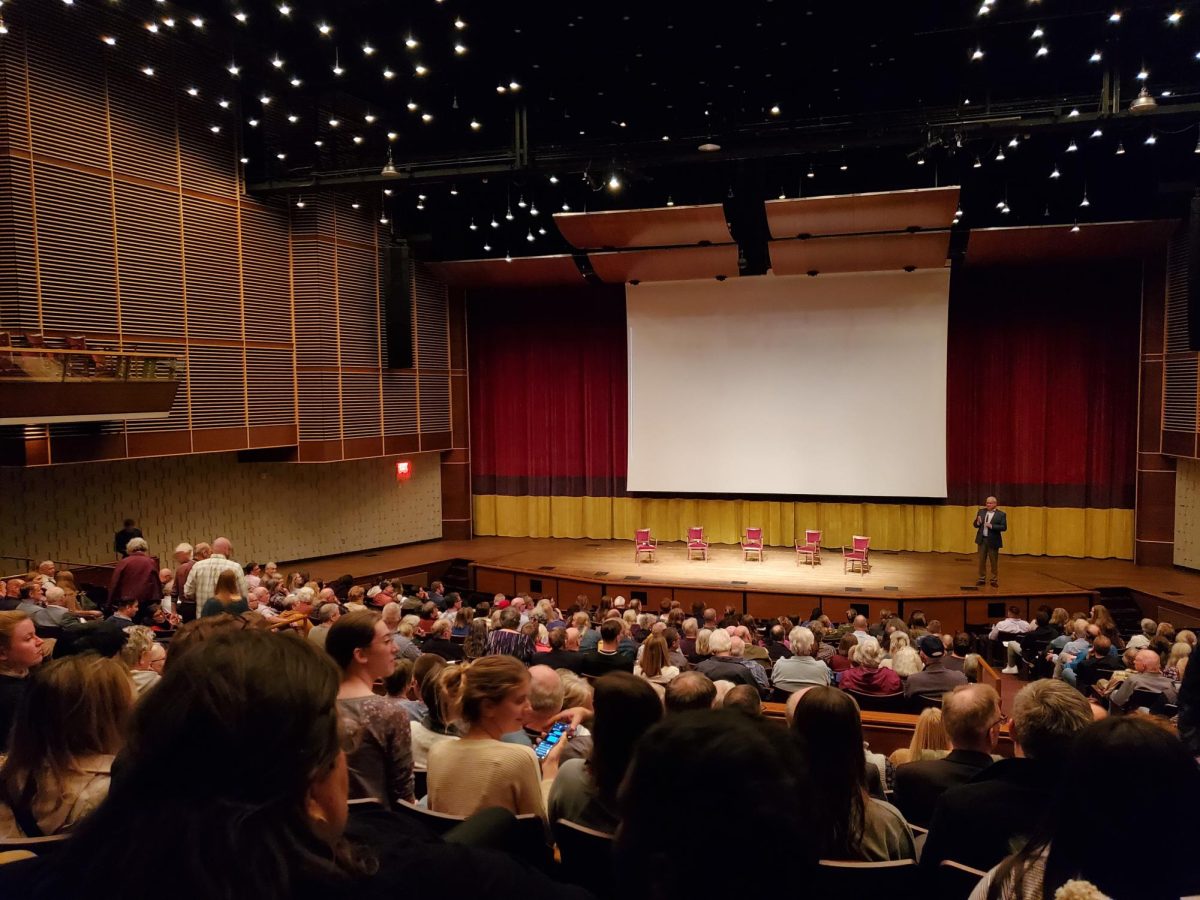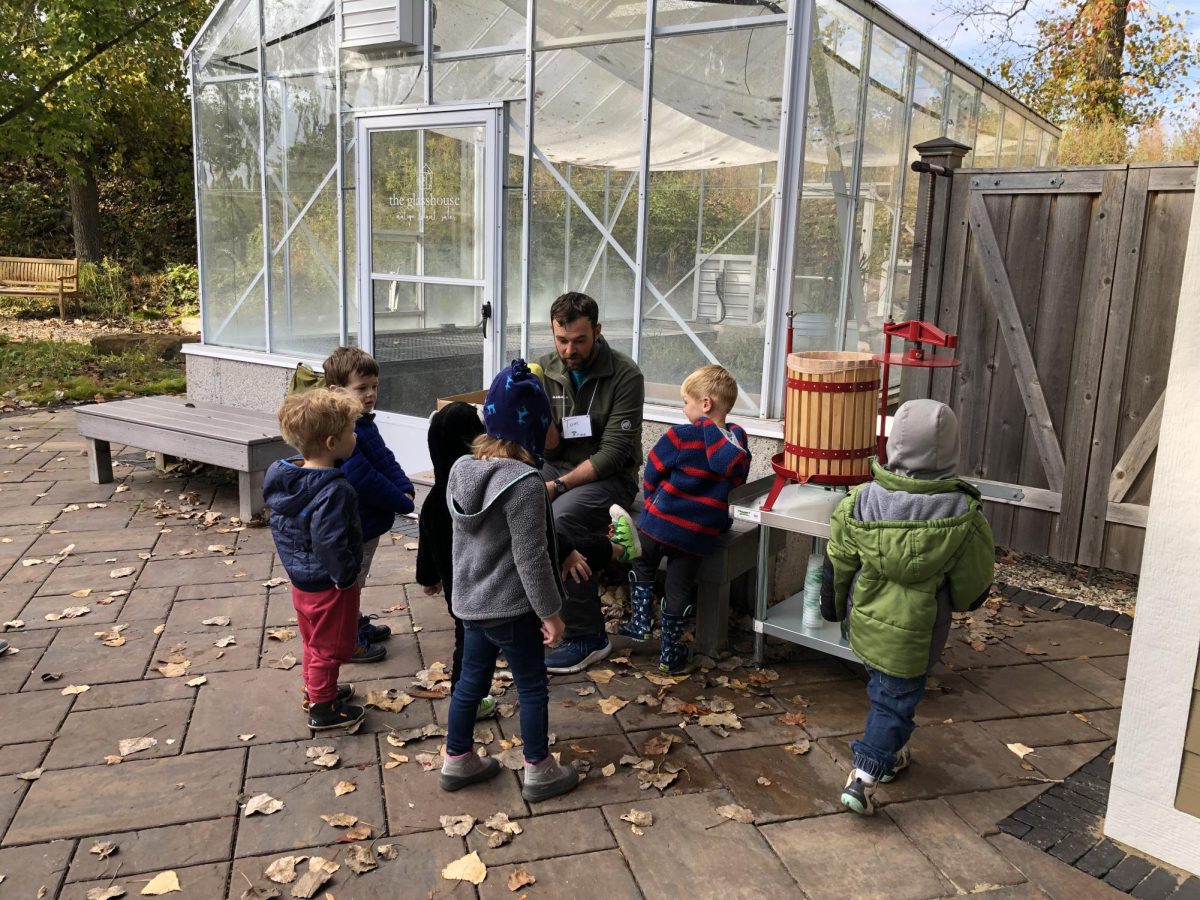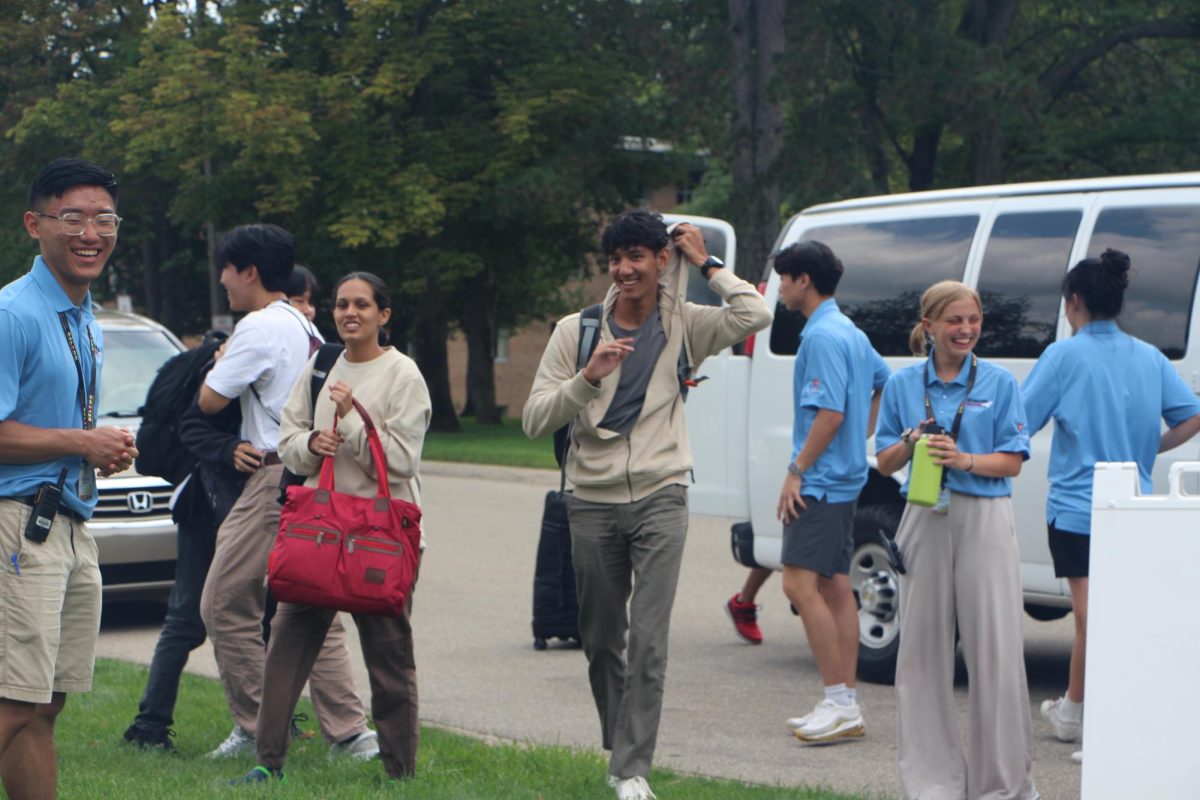“It’s impossible to fail at reading.”
This claim, set out by Lisa Cockrel, the new director of the Festival of Faith and Writing, at its opening plenary, was tried and tested, pondered and played with by dozens of speakers and a record-setting 2,074 attendees throughout the weekend of April 14-16.
This year’s festival, the 14th since the event began in 1990, marked a transition for the event as it celebrated the establishment of the new Calvin Center for Faith and Writing (CCFW). Opening with a service of dedication for the new center, the festival featured a pervasive sense of “gathering up the past and working toward the future,” according to faculty committee member Debra Rienstra.
The CCFW, funded by a donation from Bob and Shelley Hudson, will provide the funding for future festivals and will also offer other opportunities for students and community members to be involved in the world of publishing.
“Not only is the future of the festival safe, but we can cultivate the fruit-bearing nature of the festival better now than in the past,” Rienstra said, alluding to the new possibilities for Festival publications, podcasts and other media that the center opens up.
Author Tobias Wolff’s opening plenary consisted mainly of a reading of his 1981 story “In the Garden of the North American Martyrs.” The story begins with a college going bankrupt due to the questionable financial decisions of its leaders, and scattered laughter could be heard among those in the audience who found the situation ironically familiar.
The story ends with a description of French missionaries in New England and their brutality toward Native Americans in their attempts to convert them to Christianity. Speaking about the complicated nature of faith, Wolff admitted to admiring and envying the “dead certainty” of these missionaries while also recognizing “the arrogance and blindness that came with it.”
The dangers of certainty became an unofficial theme of the festival, as speakers throughout the weekend discussed the difference — and even incompatibility — between faith and certainty.
“Artists are really sensitive barometers of cultural trends,” Rienstra said. “That theme of … the desirability of uncertainty arises out of politics right now — the ugliness of American certainty about so many things.”
During an interview with Calvin English professor Jane Zwart, novelist Zadie Smith saw certainty as a cause of judgment, citing authors like Jane Austen and George Eliot as people whose certainty about the proper way to live causes them to be extremely judgmental toward their characters.
“Austen is one of the most judgmental authors ever to have lived,” Smith said. “Everyone in [“Pride and Prejudice”] is a target of judgment except Elizabeth.”
Smith returned to this theme when Zwart asked her about her religious views: “The problem with religion is the certainty.”
Smith said the kind of God who appeals to her is one who doesn’t even allow certainty, one whom we cannot even come close to understanding. This allows us to treat the good in the world as God, and Smith said, “I don’t see what God could be but that.”
In a reading of his poetry on Saturday morning, former “Poetry” editor Christian Wiman expressed a more Christian rejection of the need for certainty, specifically certainty about what happens after death.
His poem “Believing Green,” which he read in his distinctively musical style that foregrounds his sonic devices, ends with the lines “into a life so starred and laughtered there was no need / for after.”
“I don’t take much comfort in the notion of heaven,” Wiman said, talking about how his poems often grapple with the darker and doubt-fueled sides of faith as well as the sunny ones. According to Wiman, many Christians’ beliefs about heaven are eternal “projections of themselves.”
In a session entitled “Called to Clarity: Writing for a Polarized Public” medical humanities professor Marilyn Chandler McEntyre outlined several rules for treating language as a sacred gift from God rather than a tool to exploit people and their thoughts. McEntyre argued that both plain and poetic language have their places in healthy communication, while euphemism and hyperbole are lazy and dishonest. When we are seeking the right words to use, we should look to the writers we admire — what McEntyre calls our “communion of saints and scribes.”
The particular saintly and scribal communion gathered at Calvin last weekend included writers of all levels of training, and Sarah Bessey (author of “Jesus Feminist: An Invitation to Revisit the Bible’s View of Women”) argued on Saturday afternoon that training and credentials are not the final qualification for writing about theology. Though academic degrees and seminary study have their place, Bessey said, the real qualification is “the spirit of God in you.”
According to Bessey, one problem with academic theology, and one reason she wrote “Jesus Feminist” is that “the conversations never make it out of academia.” Since Christianity is a faith that allows everyone to “stand before God with your face unveiled,” Bessey argued that anyone can make a contribution to understanding that faith.
“I don’t think we get to decide who’s qualified to proclaim the gospel,” Bessey said.
Other festival guests included Pulitzer-winning novelist Paul Harding, young adult authors Jennifer Mathieu and M.T. Anderson, renowned short storyist George Saunders and journalist Jeff Chu, among many others.
For many of the Calvin students attending or working the festival, the highlight was children’s author Andrew Clements, whose books include “Frindle,” “The Report Card” and “Things Not Seen.”
Throughout the festival, introducers like Zwart and her fellow CCFW co-director, Jennifer Holberg, would take time before introducing speakers to remember those who have helped form the first 25 years of the festival’s existence, including its three past directors: Henry Baron, Dale Brown and Shelly LeMahieu Dunn.
The floor of the Van Noord Arena was filled on Saturday night for the closing plenary talk by Nadia Bolz-Weber, the tattooed, uncensored Lutheran pastor of House for All Sinners and Saints in Denver, Colo.
Bolz-Weber began with a crack about her latest book, “Accidental Saints,” and how her publisher wouldn’t let her title it “Purpose-Driven Sinners” before launching into an unconventional sermon-like talk about honesty, love and “the jagged edges of our humanity.”
Bolz-Weber’s sermon focused on the difference between our real selves — the selves that God loves — and the fake personas we try to mold into perfection in response to a demanding world.
There are two possible responses to our inevitable failure to live rightly, Bolz-Weber said: either continue to “fake that shit,” or allow oneself to feel hopeless and vulnerable. The rest of her sermon highlighted how love often appears only after vulnerability does.
In one particularly emotional moment, Bolz-Weber related the story of a community college professor who was the first person ever to tell her she was smart. She went from being a frightened writer to a successful graduate student. The moral, Bolz-Weber said, is, “If you see something in someone you think they don’t see in themselves, it’s your responsibility to say it.”
Applause erupted from the multigenerational crowd every time Bolz-Weber made an especially resonant point about the kind of fakeness that permeates contemporary Christianity and God’s rejection of that fakeness. Her standing ovation from the audience was unique at the festival, and she closed with a blessing that began, “Blessed are the agnostics, blessed are those who doubt,” returning once again to that unplanned certainty-challenging theme of the festival.
If we listen to the combined words of the festival’s guests, words from men and women, publishers and readers, gay writers and straight writers, Muslims, Buddhists and Christians, one message we hear is that it is impossible to fail at reading only if we are reading without certainty. It is impossible to fail at reading as long as we can ask questions well and live with some answers in which we can only ever have faith and not certainty.



